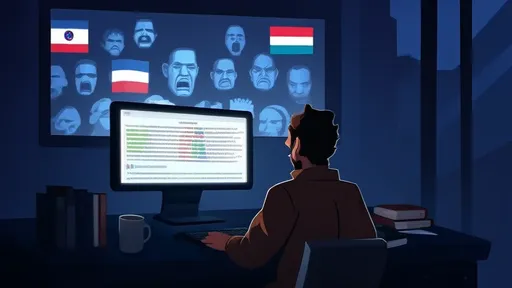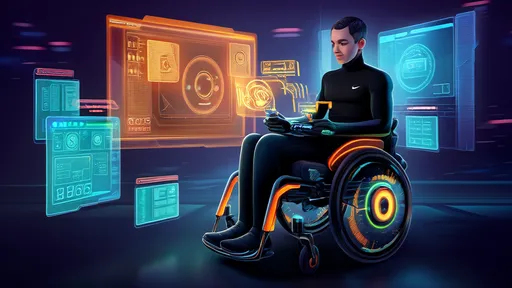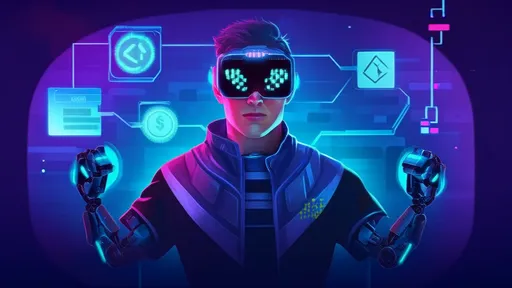In recent years, South Korea has emerged as a global leader in addressing the growing issue of internet and gaming addiction among teenagers. With one of the highest rates of internet penetration in the world, the country has had to confront the darker side of its digital revolution head-on. The government, alongside private institutions, has developed a unique approach to treating this modern affliction, blending strict discipline with psychological care in specialized facilities often referred to as "game detox centers."
These centers, scattered across the country, operate with a singular goal: to help adolescents break free from the grip of excessive gaming and online dependency. Unlike traditional rehabilitation clinics, they employ a multifaceted strategy that goes beyond mere abstinence. The programs typically last between two to four weeks, during which participants are completely cut off from digital devices. This cold-turkey approach is paired with intensive counseling, group therapy, and physical activities designed to rebuild healthier habits and social skills.
The roots of South Korea's gaming addiction problem run deep. The nation's rapid technological advancement created a culture where online gaming isn't just entertainment—it's a social currency and, for some, a potential career path. PC bangs (internet cafes) operate 24/7, and esports stars enjoy celebrity status. This environment has made it particularly challenging for teenagers to maintain a balanced relationship with digital media. Many students, overwhelmed by academic pressure, turn to games as an escape, only to find themselves trapped in a cycle of dependency.
At the heart of the treatment philosophy is the recognition that gaming addiction often masks deeper psychological issues. Counselors at these centers work to uncover the underlying causes—whether it's family problems, academic stress, or social anxiety—that drive compulsive gaming behavior. Through one-on-one sessions, therapists help participants develop coping mechanisms that don't involve digital escapism. The process is often painful, with many teenagers experiencing withdrawal symptoms similar to those seen in substance abuse cases.
Physical rehabilitation forms another crucial component of the treatment. Many addicted teenagers arrive at the centers in poor physical condition, having neglected exercise and proper nutrition during their gaming binges. Daily routines include military-style drills, team sports, and outdoor activities aimed at rebuilding physical health and teaching the value of real-world interactions. The rigorous schedule leaves little room for boredom, a key trigger for relapse.
Family involvement is mandatory in most programs, reflecting the Korean cultural emphasis on familial responsibility. Parents attend counseling sessions and workshops to understand their role in both the development and solution of the addiction. Many come to realize how their own unrealistic expectations or emotional neglect may have contributed to the problem. The healing process often requires fundamental changes in family dynamics, not just individual behavior.
The results of these intensive programs have been promising, though not without controversy. Critics argue that the military-style discipline borders on abuse, while others question whether such short-term interventions can effect lasting change. Proponents counter that the severity of the addiction demands equally strong measures, pointing to follow-up studies showing significant improvements in participants' academic performance, social relationships, and overall well-being months after completing the program.
South Korea's approach continues to evolve as researchers gain deeper understanding of digital addiction. Some centers have begun incorporating mindfulness training and creative therapies like music and art into their programs. The government has also implemented nationwide initiatives, including nighttime gaming shutdowns for minors and public awareness campaigns. While the problem persists, Korea's comprehensive strategy offers valuable lessons for other nations grappling with the challenges of our hyper-connected age.
What makes the Korean model particularly noteworthy is its recognition of gaming addiction as a complex societal issue rather than just individual weakness. The treatment centers represent just one part of a broader ecosystem that includes school-based prevention programs, corporate responsibility from game developers, and ongoing research into the neurological effects of excessive screen time. As digital technology becomes increasingly pervasive globally, South Korea's experiences—both its struggles and solutions—may well preview challenges other societies will soon face.

By /Jul 3, 2025

By /Jul 3, 2025

By /Jul 3, 2025

By /Jul 3, 2025

By /Jul 3, 2025

By /Jul 3, 2025

By /Jul 3, 2025

By /Jul 3, 2025

By /Jul 3, 2025

By /Jul 3, 2025

By /Jul 3, 2025

By /Jul 3, 2025

By /Jul 3, 2025

By /Jul 3, 2025

By /Jul 3, 2025

By /Jul 3, 2025

By /Jul 3, 2025

By /Jul 3, 2025